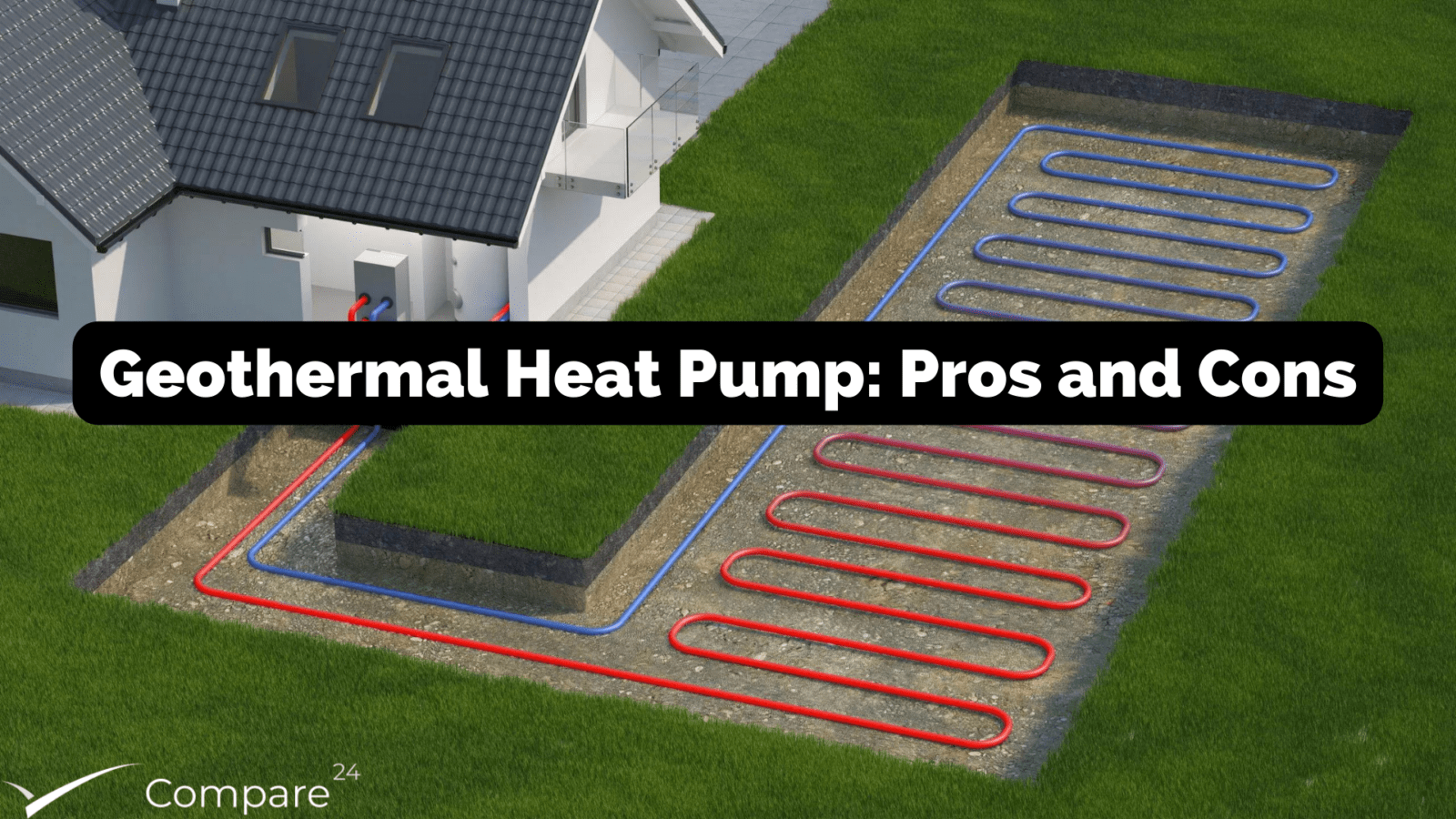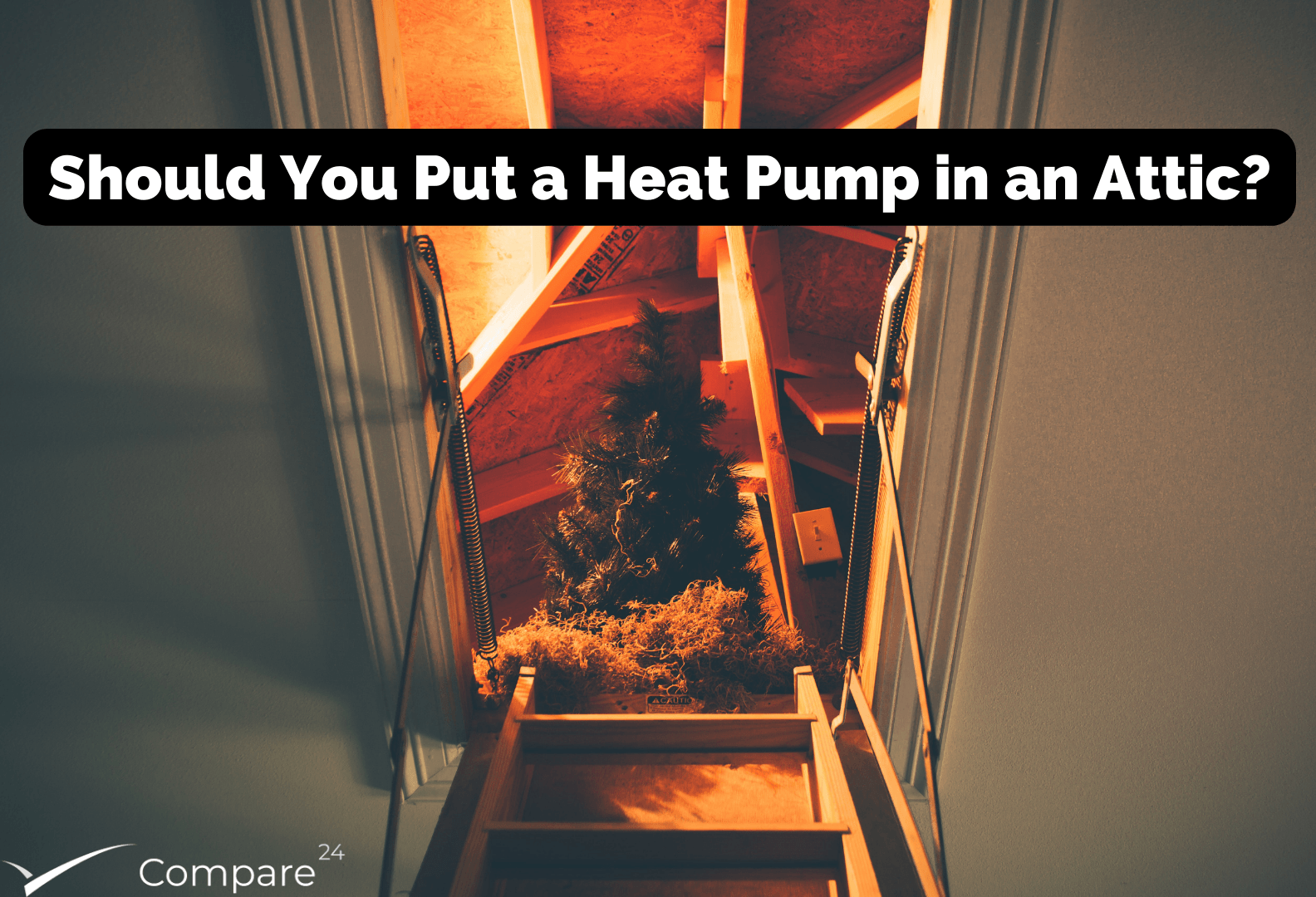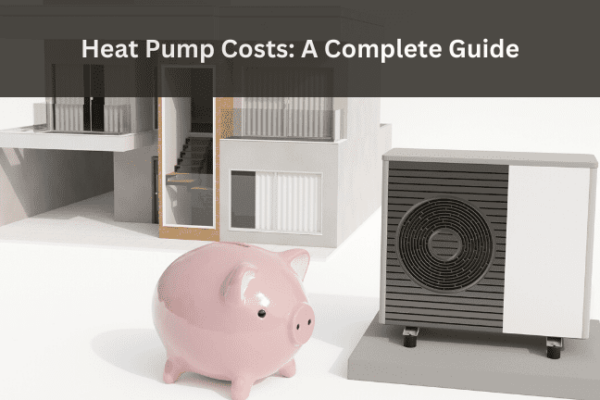If you are evaluating the possibility of installing a heat pump in your home, by now you should already know all of the different types of heat pumps available, and geothermal remains one of the most interesting. Also known as a ground source heat pump, this system is by far the most expensive to install, but there are also a lot of advantages, including being one of the most efficient heat pump types, and the one that lasts the longest.
Today, we will compare all the pros and cons of geothermal heat pumps, so you can easily decide whether or not this is the right system for you.
Pros of a geothermal heat pump
Extremely efficient
One of the main advantages of heat pumps is the fact that they are extremely efficient, but not every type of heat pump is the same. In fact, geothermal heat pumps are by far the most efficient option and can turn the electricity consumer into heat with a 300% to 500% efficiency.
This makes it the most efficient heating system available today, and despite its high upfront costs, the savings will be worth it.
It does not require a lot of maintenance
Ground source heat pumps also do not require a lot of maintenance, as opposed to the more popular air source heat pumps. One of the reasons is that it has fewer parts, and therefore you don’t have to replace as many things.
Lowest carbon footprint
If one of the reasons you are considering installing a heat pump is because it is environment-friendly, and it does not require fossil fuels, you’ll be pleased to know that ground source heat pumps are the most environment-friendly option available. Especially because they last a long time.
Quietest type of heat pump available
For homeowners worried about the noise of their HVAC systems, geothermal heat pumps are the quietest option available. While this is certainly not one of the biggest advantages of this type of system, it is definitely worth mentioning.
It lasts a long time
While a conventional air source heat pump can last upwards of 20 years, if it is well maintained, a ground source heat pump can last over 50 years. This is by far one of the best heating and cooling systems you can install in your home, that will last a long time, without having to spend a lot of money on maintenance.
Appropriate for all types of climate
While air source heat pumps tend to malfunction in extremely cold weather, their geothermal counterparts tend to work great in all sorts of climates, because they are just dependent on the soil. On the other hand, air source heat pumps efficiency, and electricity consumption shift depending on the outside temperature.
Saves you a lot of money
By far the best heat pump type to invest in is a geothermal heat pump. It is the most expensive upfront, especially to install the system, but it will be the most efficient, and long-lasting system providing you with heating and cooling for nearly a lifetime.
Adds the most value to your home
Obviously being the most expensive heat pump system, it also is the one that adds the most value to your house. This is something important to consider, especially if you might resell your home later on.
Certainly, a ground source should not be considered for a rental, but it is worth considering if you want to keep your property for some time.
It does not require outdoor units
While most types of heat pumps require an outdoor unit, a ground source heat pump requires just an underground installation, without any visible units outdoors. This can be an important advantage for those with smaller outdoor spaces.
Cons of a geothermal heat pump
Most expensive type of heat pump
A geothermal heat pump is certainly the most expensive type of heat pump available, and it can cost between $10,000 for smaller homes to $40,000 depending on the system, and the size of your house.
More appropriate for new homes
Installing a geothermal heat pump requires creating an underground area close to your house, where the coils are placed. This requires excavation and changing the landscape of your house. For this reason, ground source heat pumps are more appropriate for new homes, because the whole system can be planned in advance, with the architect, and contractor.
Installation can take a long time
While an air or water source heat pump can be installed in a single day, a geothermal heat pump can take up to 2 months to be installed. Once again, this remains another reason why newly built homes are ideal for this type of system it will not as intrusive as doing it in a house where you are currently living.
Difficult to install
Due to the excavation, and importance of the location and preparation involved in installing a ground source heat pump, these systems can be difficult to install. Additionally, due to the high costs involved you should hire a professional company, that has vast experience installing this type of system.
Repairs are more expensive
Geothermal heat pumps do not require as much maintenance but any repairs that are needed can certainly be costly. The good news is that the best way to prevent any future repairs is to have your heat pump installed by an experienced company.
It might require changing your outdoor space landscape
Most heat pump systems can easily be placed on the wall of your home, or in a simple location close to the house. However, geothermal heat pumps require excavating and creating an underground area close to your house. This can change the layout of your outdoor space, and your landscape.
Your home might not be suitable for a geothermal heat pump
Finally, while you can install an air-source heat pump on pretty much every home, the same does not apply to geothermal heat pumps. You will need some outdoor space, that can be used to create the underground area, and place the coils. This might not be suitable for your home, and this is clearly a disadvantage.
Is a geothermal heat pump worth it?
A geothermal heat pump is certainly one of the best systems to install in your home, but to be worth it, you need to consider all the pros and cons. It is usually wiser to install this type of system in newly built houses because all the underground work can be done together with the contractor, which makes it easy to plan and design the system.
While you can still install a ground source heat pump on an existing house, you need to make sure that you have enough space, and that you hire an extremely experienced and professional company to do it. A geothermal heat pump is one of the most complicated heating systems to install because it requires planning, digging and a few days of work. If it is done incorrectly it can also affect its efficiency and lifespan, and it can be more prone to being damaged, and the repairs for this type of system are extremely costly.
For those reasons, you can ask different companies for a quote, to make sure you get the best possible offers.



![Does a Pool Heat Pump Need To Be in the Sun? [Explained]](https://blog.compare24.net/wp-content/uploads/2022/10/Can-Heat-Pumps-Geneate-Electricity-4.png)
